 Since the World Poker Tour first went to Paris during its inaugural year, an American has never won the title there– until this year, when US-born Matt Waxman made WPT history by snagging the title and the €518,750 prize for first place. Waxman managed to get a healthy chip lead and eliminate his competition, including Martin Jacobson, who was the most experienced poker player at the final table but busted early after coming into the game extremely short-stacked.
Since the World Poker Tour first went to Paris during its inaugural year, an American has never won the title there– until this year, when US-born Matt Waxman made WPT history by snagging the title and the €518,750 prize for first place. Waxman managed to get a healthy chip lead and eliminate his competition, including Martin Jacobson, who was the most experienced poker player at the final table but busted early after coming into the game extremely short-stacked.
Jacobson was the first player eliminated from the six-handed final table when, feeling the pressure as his short stack was eaten away by blinds, went all-in on AJ against Mikko Sundell, who held pocket Jacks. The cards didn’t hold anything to help Jacobson out, and he went home with €88,900. Despite the gain in chips, Sundell lost most of them shortly thereafter to Waxman, who left Kaverman to finish up the job. Sundell went all-in with K6 against Kaverman’s AJ with 5d5c8h showing on the board. A J on the turn and a 2 on the river meant that Sundell was the fifth place finisher with €133,330. Kaverman would be the next to go, this time at the hands of Fred Magen, who called Kaverman’s all-in bet and managed to pull a straight out of his hat. Kaverman went home with €155,550.
Spectators and players were beginning to notice a trend. Sundell had eliminated Jacobson. Kaverman then eliminated Sundell. Next, Magen eliminated Kaverman. One has to imagine that Magen, even if he’s not a superstitious kind of guy, had to feel a little nervous as the play went on, down to three players– if the trend continued, he would surely be the next one out. Magen, Lemaire, and Waxman played for quite some time before Magan tried to steal the pot by bidding too much, and Waxman went all in. He would take the pot with Ace high, and Magan would leave in third place with €211,100.
 Finally, the game had come to heads up competition. Neither Matt Waxman or Hugo Lemaire had a record of substantial wins before, and it may well have been anyone’s game, had Waxman not had a substantial chip lead. The American held 7,863,000 chips, while the Frenchman had a mere 1,550,000, and Waxman would use this to his advantage to bait Lemaire and force his hand. When Lemaire was forced into a call on the third hand of heads up play, Waxman made the flush draw that he needed and sent Lemaire home with €311,100 and an entry to WPT Amneville (€3,500 value). Meanwhile, Waxman collected a new title, a moment in poker history, €518,750, and a seat in the WPT World Championship Event for 2012.
Finally, the game had come to heads up competition. Neither Matt Waxman or Hugo Lemaire had a record of substantial wins before, and it may well have been anyone’s game, had Waxman not had a substantial chip lead. The American held 7,863,000 chips, while the Frenchman had a mere 1,550,000, and Waxman would use this to his advantage to bait Lemaire and force his hand. When Lemaire was forced into a call on the third hand of heads up play, Waxman made the flush draw that he needed and sent Lemaire home with €311,100 and an entry to WPT Amneville (€3,500 value). Meanwhile, Waxman collected a new title, a moment in poker history, €518,750, and a seat in the WPT World Championship Event for 2012.
Past winners of the World Poker Tour Paris events have been Christer Johansson of Sweden (Season 1), Frenchman David Benyamine (Season 2), Brits Surinder Sunar and Roland de Wolfe (Seasons 3 and 4, respectively), Christian Grundtvig of Denmark (Season 5), and Theo Jorgensen of Norway (Season 9—the WPT bowed out of Paris in Seasons 6-8). Not only has no American won before Maxman, but the final table in this event has never been dominated by Americans, as often happens in so many other locales in this and other poker tours. The vast majority of the final table seats since the beginning of the tournament have gone to the French, the British, and the Scandinavians, with very few exceptions (noteworthy Americans who have made final tables at the WPT Paris in the past include Allen Cunningham, Erick Lindgren, and Alan Goehring). In last year’s WPT Paris, the final table saw representation from only three countries– Denmark (1 players), Sweden (2 players), and France (5 players), making Waxman’s victory this year just that much more remarkable.
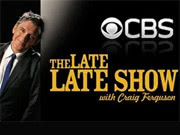 Annie Duke has been getting a lot of attention over a comment that she made during her appearance on “The Late Late Show with Craig Ferguson,” where she went to promote her new book and the Epic Poker League. Critics have nothing negative to say about 99% of her spot on the American show, but they take issue with three words that Duke uttered in response to a comment from Ferguson, who said, “Now, isn’t poker illegal?” Duke responded, “No, that’s only online.”
Annie Duke has been getting a lot of attention over a comment that she made during her appearance on “The Late Late Show with Craig Ferguson,” where she went to promote her new book and the Epic Poker League. Critics have nothing negative to say about 99% of her spot on the American show, but they take issue with three words that Duke uttered in response to a comment from Ferguson, who said, “Now, isn’t poker illegal?” Duke responded, “No, that’s only online.”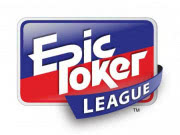 5. Duke has the EPL now, so she doesn’t care about the fate of online poker.
5. Duke has the EPL now, so she doesn’t care about the fate of online poker.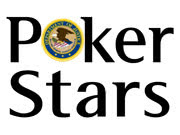 At long last, there’s a little bit of good news for PokerStars, which has seen the vast majority of its assets frozen since Black Friday last April. The United States Department of Justice, which was responsible for freezing the assets of not only PokerStars but also Full Tilt Poker and Absolute Poker, has released one account belonging to Sphene International, one of the payment processors for PokerStars.
At long last, there’s a little bit of good news for PokerStars, which has seen the vast majority of its assets frozen since Black Friday last April. The United States Department of Justice, which was responsible for freezing the assets of not only PokerStars but also Full Tilt Poker and Absolute Poker, has released one account belonging to Sphene International, one of the payment processors for PokerStars. Players who have money tied up in Full Tilt Poker will be interested to know that the site released an “exclusive news update” to pokernews.com today, regarding their status with the undisclosed investors. Full Tilt, in the past, has been less than forthcoming with information regarding what, exactly, is going on with the site, which was previously one of the largest online poker sites in the world, and now they’ve released a short private statement, which seems to be code for “we don’t have any good news to report, or we’d be sending this out to every news source, social networking medium, and former customer.”
Players who have money tied up in Full Tilt Poker will be interested to know that the site released an “exclusive news update” to pokernews.com today, regarding their status with the undisclosed investors. Full Tilt, in the past, has been less than forthcoming with information regarding what, exactly, is going on with the site, which was previously one of the largest online poker sites in the world, and now they’ve released a short private statement, which seems to be code for “we don’t have any good news to report, or we’d be sending this out to every news source, social networking medium, and former customer.”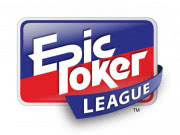 Chino Rheem, who recently made headlines when he won the inaugural Main Event of the newly-formed Epic Poker League, taking home a $1,000,000 prize, has been suspended by the EPL due to a massive amount of outstanding debts. The EPL states that Rheem is in violation of their Code of Conduct not just because he owes a lot of people a lot of money, but because he’s allegedly gone to unusual lengths to avoid paying any of it back.
Chino Rheem, who recently made headlines when he won the inaugural Main Event of the newly-formed Epic Poker League, taking home a $1,000,000 prize, has been suspended by the EPL due to a massive amount of outstanding debts. The EPL states that Rheem is in violation of their Code of Conduct not just because he owes a lot of people a lot of money, but because he’s allegedly gone to unusual lengths to avoid paying any of it back. So far, his EPL winnings have gone to paying off Ben Lamb and Erik Cajelais in entirety, although many of the other outstanding debts were paid in smaller amounts (on average, a 10% payment). Time will tell if more debts begin to come out of the woodwork as word spreads, but one thing is for sure– the EPL is committed to helping maintain their good name.
So far, his EPL winnings have gone to paying off Ben Lamb and Erik Cajelais in entirety, although many of the other outstanding debts were paid in smaller amounts (on average, a 10% payment). Time will tell if more debts begin to come out of the woodwork as word spreads, but one thing is for sure– the EPL is committed to helping maintain their good name. When everything looks darkest for American poker players, who have suffered disaster after disaster since Black Friday four months ago, one website is going above and beyond to come to the rescue– PocketFives. The website, which offers an assortment of training and coaching opportunities so that players can hone their skills, is now offering a new service by helping
When everything looks darkest for American poker players, who have suffered disaster after disaster since Black Friday four months ago, one website is going above and beyond to come to the rescue– PocketFives. The website, which offers an assortment of training and coaching opportunities so that players can hone their skills, is now offering a new service by helping 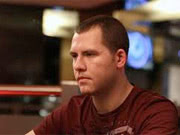
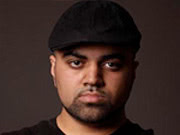 Cates will be staying with Jose “Girah” Macedo (whose name he wasn’t sure how to pronounce in the same interview) and Haseeb Qureshi in Lisbon, who is following Cates out of the country– Macedo is already in Portugal. As Qureshi said in his blog at Cardrunners, “Now our plans have reverted back to going to Portugal after all – most likely Lisbon. Jungle and I will be living with Jose ‘Girah’ Macedo and will be flying out there sometime in the coming week. I have no doubt that it’s going to be an interesting excursion.”
Cates will be staying with Jose “Girah” Macedo (whose name he wasn’t sure how to pronounce in the same interview) and Haseeb Qureshi in Lisbon, who is following Cates out of the country– Macedo is already in Portugal. As Qureshi said in his blog at Cardrunners, “Now our plans have reverted back to going to Portugal after all – most likely Lisbon. Jungle and I will be living with Jose ‘Girah’ Macedo and will be flying out there sometime in the coming week. I have no doubt that it’s going to be an interesting excursion.” The defense wasn’t shy about bringing people forward to state their case. During the hearing, the judge heard from a professional poker player, a mathematician who plays poker recreationally, and chess and bridge champions, all of whom said one thing: poker is clearly a game of skill. There is a precedent for this kind of argument, as backgammon was considered a game of chance in the US until 1981, when tournament director Ted Barr was arrested for promoting gambling and took the court to task over their definition of backgammon as a game of chance. While some people consider poker a game of chance, due to the fact that cards are dealt randomly, pros like Annette Obrestad have demonstrated that one doesn’t even need to look at the cards in one’s hand to win a tournament! In 1981, the argument was much the same– because backgammon involved dice, legislators believed that it had to be a game of chance, although the witnesses called to the stand demonstrated that there is no randomness to winning– experienced players consistently beat new players– and there were countless options available to the player after the dice had landed.
The defense wasn’t shy about bringing people forward to state their case. During the hearing, the judge heard from a professional poker player, a mathematician who plays poker recreationally, and chess and bridge champions, all of whom said one thing: poker is clearly a game of skill. There is a precedent for this kind of argument, as backgammon was considered a game of chance in the US until 1981, when tournament director Ted Barr was arrested for promoting gambling and took the court to task over their definition of backgammon as a game of chance. While some people consider poker a game of chance, due to the fact that cards are dealt randomly, pros like Annette Obrestad have demonstrated that one doesn’t even need to look at the cards in one’s hand to win a tournament! In 1981, the argument was much the same– because backgammon involved dice, legislators believed that it had to be a game of chance, although the witnesses called to the stand demonstrated that there is no randomness to winning– experienced players consistently beat new players– and there were countless options available to the player after the dice had landed. America and Canada have always had an amicable relationship based on Canada’s perception that Americans are too intense and America’s firm belief that Canada’s chief function is as America’s hat. Travel between the two has always been easy, and citizens generally regard one another as long-lost friends, albeit friends who talk a little funny. With the chaos in the poker world in the US, however, more and more American poker players are heading to the Great White North in an attempt to reactivate their online poker accounts and get back into the game.
America and Canada have always had an amicable relationship based on Canada’s perception that Americans are too intense and America’s firm belief that Canada’s chief function is as America’s hat. Travel between the two has always been easy, and citizens generally regard one another as long-lost friends, albeit friends who talk a little funny. With the chaos in the poker world in the US, however, more and more American poker players are heading to the Great White North in an attempt to reactivate their online poker accounts and get back into the game. According to sources at Subjectpoker.com, both Phil Ivey and David Benyamine have, over the course of the past two to three years, borrowed large amounts of money from Full Tilt Poker.
According to sources at Subjectpoker.com, both Phil Ivey and David Benyamine have, over the course of the past two to three years, borrowed large amounts of money from Full Tilt Poker.